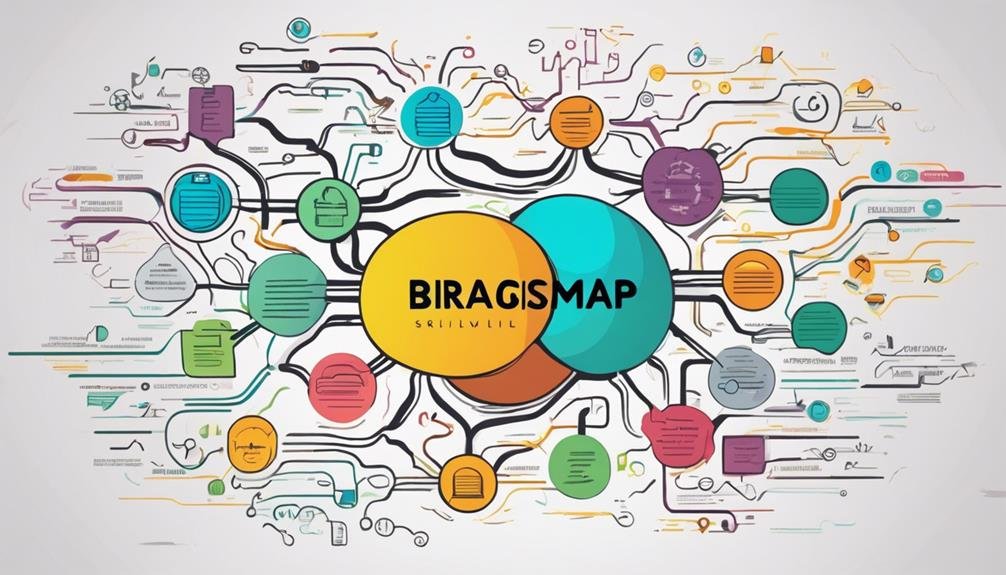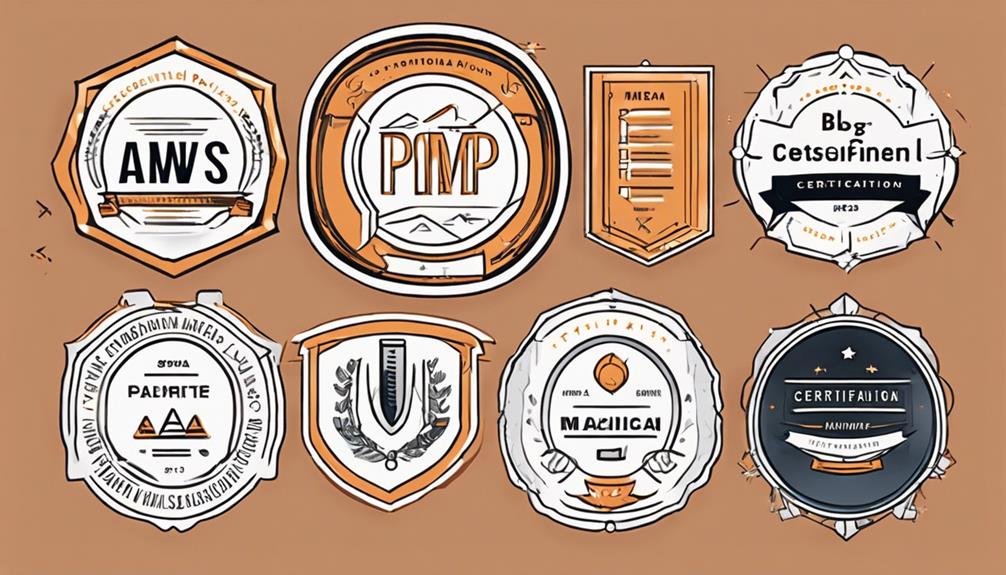To make your resume impressive, essential skills are a must. Include problem-solving, critical thinking, communication, teamwork, and organization skills. Tailor your skills to match the job description by highlighting, aligning, and showcasing them properly. Organize your resume by categorizing hard skills, listing soft skills, and prioritizing those relevant to the job. Soft skills like communication and teamwork are highly valued by employers, as they are transferable across industries. Certifications in areas like project management or IT can make you stand out, showing employers your specialized knowledge. Enhancing your professional profile with certifications can lead to better career opportunities.
Key Takeaways
- Soft skills are crucial for resumes.
- Certifications showcase specialized skills.
- Tailoring skills to job descriptions is vital.
- Highlighting relevant skills increases chances.
- Employers highly value communication and teamwork.
Top Skills for Resume

When crafting your resume, it is vital to highlight the top skills that employers value across various industries and job roles. These skills, including problem-solving, critical thinking, communication, teamwork, and organization, are highly sought after by employers. Incorporating these key skills into your resume can greatly enhance your chances of securing interviews and job offers. By showcasing these essential skills, you demonstrate your ability to contribute effectively to a company and handle the demands of different job roles. Whether you possess soft skills like communication and teamwork or hard skills like problem-solving and critical thinking, emphasizing them on your resume is pivotal. Tailoring your resume to highlight these top skills not only makes you stand out among other candidates but also shows potential employers that you are well-equipped to excel in various work environments and positions. Make sure to present these skills clearly and effectively to make a lasting impression on recruiters.
Matching Skills to Job Description
To enhance your chances of standing out to potential employers, aligning your skills with the specific requirements outlined in the job description is paramount. When tailoring your resume, matching your skills to the job description is pivotal as it shows your suitability for the role. By highlighting the essential skills from the job requirements, recruiters can quickly see that you possess the qualifications they are looking for. This understanding of the job description and the ability to showcase relevant skills can give you an edge over other candidates competing for the same position.
| Skills | Job Description | Matching |
|---|---|---|
| Tailoring | Specific skills | Essential |
| Highlighting | Qualifications | Recruiters |
| Aligning | Role requirements | Job-specific |
| Demonstrating | Understanding | Key skills |
| Showcasing | Relevant skills | Stand out |
Organizing Your Resume Skills

Organize your resume skills strategically to make a strong impression on potential employers. Begin by categorizing hard skills, such as technical skills specific to the job, before listing soft skills like personal attributes. Highlight job-specific hard skills at the start of your skills section to immediately capture the employer's attention. Prioritize relevant skills that directly align with the job description to effectively showcase your qualifications. When listing technical skills, focus on those that are directly related to the job requirements, and then include interpersonal skills like communication and teamwork. By organizing your skills in this manner, you can enhance the impact of your resume and increase your chances of landing an interview. Remember, a well-organized skills section not only demonstrates your capabilities but also shows your attention to detail and professionalism, which are key qualities employers look for in potential candidates.
Importance of Soft Skills
Soft skills play an important role in the professional landscape, being deemed more essential than hard skills by a notable percentage of senior leaders. Employers highly value soft skills such as communication and teamwork, recognizing their contribution to a positive work environment and overall productivity. In fact, 93% of employers consider soft skills either essential or very important when making hiring decisions. The importance of these skills lies in their transferable nature, allowing individuals to apply them across various industries and roles, thus enhancing career growth opportunities. Developing strong soft skills not only leads to better job performance but also results in higher job satisfaction and increased chances for advancement. Honing your soft skills can have a significant impact on your workplace success and overall professional journey. Remember, employers are looking for candidates who possess a blend of both hard and soft skills to thrive in today's competitive job market.
Certifications and Accreditations

Given the competitive nature of the job market, showcasing your expertise through certifications and accreditations can greatly bolster your resume. Certifications demonstrate your specialized knowledge and skills, indicating to employers your dedication to staying current in your field. Employers highly value certifications as they provide tangible proof of your capabilities. Adding relevant certifications, especially in areas like project management or IT, can make your resume stand out among other candidates. These certifications not only boost your credibility in specific fields but also help you meet job requirements effectively. By including certifications and accreditations on your resume, you increase your chances of getting hired as they show that you possess the necessary skills and expertise for the job. So, take the time to obtain certifications that align with your career goals and watch how they enhance your professional profile.